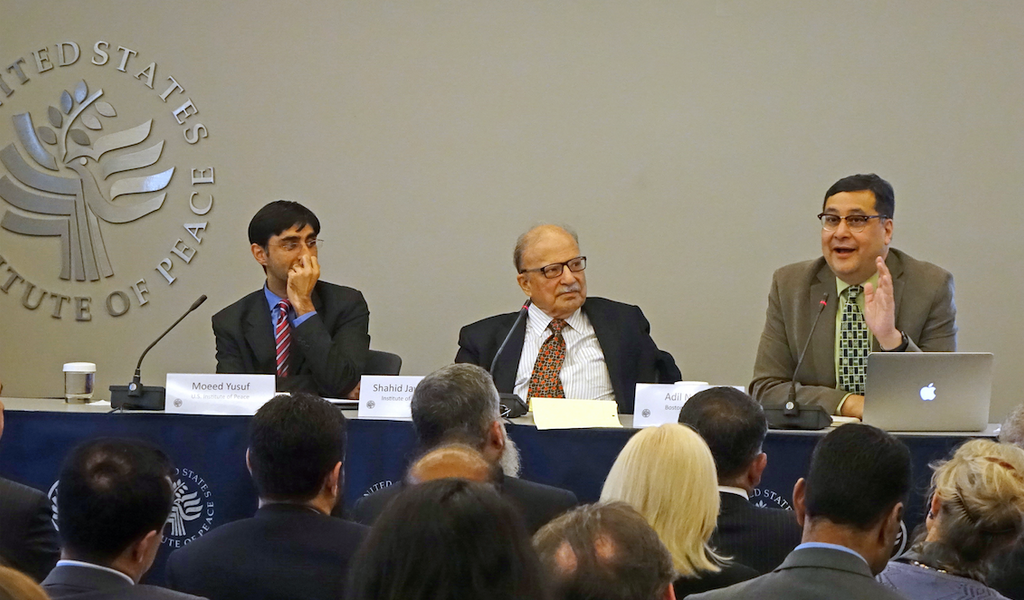Najam Discusses Pakistan’s Future Stability at USIP

Adil Najam, Dean of the Frederick S. Pardee School of Global Studies at Boston University, believes that the future of Pakistan will be determined by three key elements, each of which is undergoing deep and transformative change at this moment: (a) the nature of the Pakistani state, (b) the nature of Pakistani society, and (c) the nature of Pakistan’s environment and climate. He suggested that the changes in the nature of the Pakistani state have surprised him, the changes in Pakistani society give him hope, and those in Pakistan’s environment are his greatest fear.
Najam was speaking at a panel on “Key Elements for a Stable Pakistan,” at the United States Institute of Peace (USIP) in Washington, D.C., on May 1, 2017. He was joined in the discussion by Shahid Javed Burki, former Finance Minister of Pakistan and Former Senior Vice President of the World Bank. The panel was moderated by Dr. Moeed Yusuf, himself an alumni of the BU Pardee School. A video of the panel discussion can be viewed here.
Najam argued that while there is much to be seriously concerned about the political developments in Pakistan, the country has, in fact, been “stumbling in the right direction.” He said, institutions are being tested, the “messiness of democracy” is on constant display, and civil-military relations continue to baffle, but overall the Pakistani state has begun developing a democratic ethos. On the changes in Pakistani society, he suggested that his greatest hope comes from the youth of Pakistan. He also suggested that on issues of extremism and terrorism, significant portions of society have finally decided that it is no longer tenable to keep quiet. Finally, he suggested that the greatest threat to Pakistan’s long-term future comes from climate change which is an existential threat to what is, he suggested, “a climatically defined country”.
Adil Najam is the Inaugural Dean of the Boston University Pardee School and his research focusses on sustainable development policy and the politics of South Asia, including Pakistan. More here.